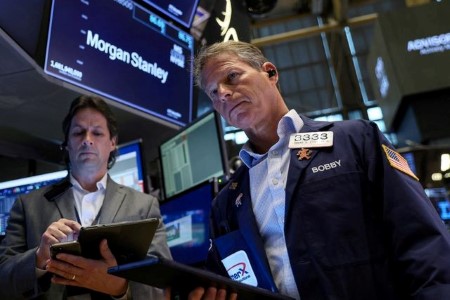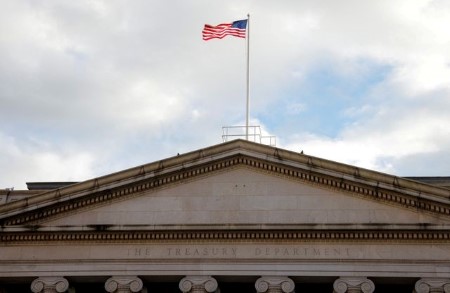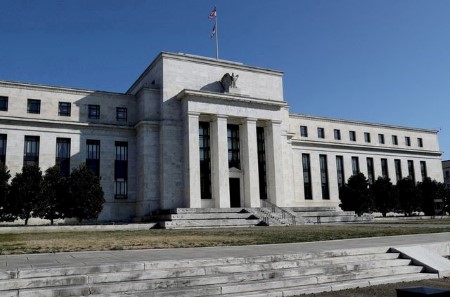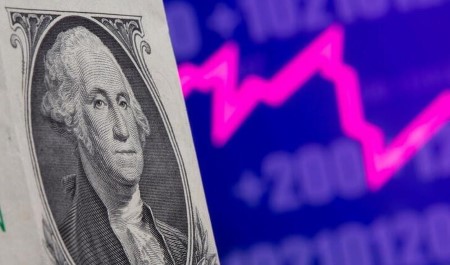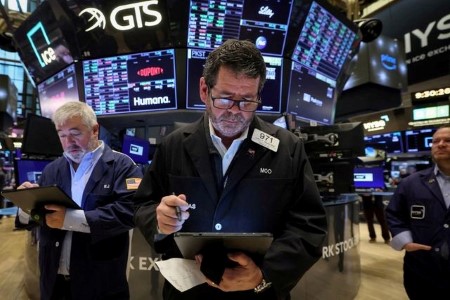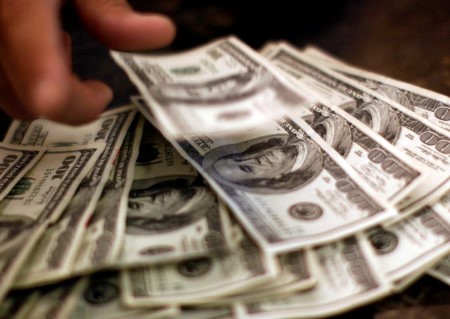NEW YORK, May 1 (Reuters) – US stocks ended little changed on Monday as investors took in the weekend auction of First Republic Bank (FRC) and braced for this week’s expected interest rate hike from the Federal Reserve.
The KBW regional banking index dropped 2.7%, while shares of JPMorgan Chase & Co (JPM), which won the auction of failed lender First Republic, rose 2.1%.
JPMorgan will pay the US Federal Deposit Insurance Corp USD 10.6 billion to take control of most of the regional bank’s assets.
Investors have been on edge about the banking system’s health following the collapse of two other regional banks in March.
“Hopefully this is sort of the last of the banking crisis, but something else might surface at some point,” said Tim Ghriskey, senior portfolio strategist at Ingalls & Snyder in New York.
Market watchers also digested the latest economic news, which suggested to some that the Fed may need to stick to its tightening cycle for the near term. The Institute for Supply Management (ISM) said on Monday its manufacturing PMI rose last month from March.
The Fed, which has been raising rates to cool inflation, is expected to hike rates an additional 25 basis points on Wednesday.
The Dow Jones Industrial Average fell 46.46 points, or 0.14%, to 34,051.7; the S&P 500 lost 1.61 points, or 0.04%, at 4,167.87; and the Nasdaq Composite dropped 13.99 points, or 0.11%, to 12,212.60.
Energy was down the most of the major S&P 500 sectors, falling 1.3% as crude oil prices declined.
Recent earnings, however, provided some lingering optimism for investors, Ghriskey said. First-quarter results from S&P 500 companies have mostly beaten expectations, easing economic concerns.
“We’ve had good earnings relative to expectations. Analysts for now have backed off of lowering estimates,” he said. “If we could have rates at this level … and corporate America continue to deliver, it’s very positive.”
Recent upbeat earnings from Alphabet Inc (GOOGL), Microsoft Corp (MSFT) and Meta Platforms Inc (META) helped the benchmark S&P 500 notch its second consecutive month of gains on Friday.
The S&P 500 technology index climbed 0.2% on Monday, offsetting some of the day’s weakness.
Volume on US exchanges was 10.24 billion shares, compared with the 10.37 billion average for the full session over the last 20 trading days.
Declining issues outnumbered advancers on the NYSE by a 1.36-to-1 ratio; on Nasdaq, a 1.17-to-1 ratio favored decliners.
The S&P 500 posted 35 new 52-week highs and one new low; the Nasdaq Composite recorded 88 new highs and 188 new lows.
(Additional reporting by Ankika Biswas and Sruthi Shankar in Bengaluru; Editing by Saumyadeb Chakrabarty, Shounak Dasgupta and Richard Chang)







 DOWNLOAD
DOWNLOAD




